Follow-up: THE FUTURE OF BOUTIQUE HOTELS
With the hospitality sector able to reopen, we thought now was a good time to catch up with a few of the BCFA members interviewed for the boutique hotel report at the beginning of the year. How the world has changed…
When asked what business outlook looked like, we received a chorus of “it’s impossible to predict”, one interviewee even admitted to buying a crystal ball but to no avail. The sector did not see a huge surge in hotels reopening on the 4th July, and those that are opening do so with cautious optimism. Whilst fit-outs that had already started pre lockdown continued, with some even fast tracked, many hoteliers delayed projects rather than using the lockdown as an opportunity for widescale refurbishments.
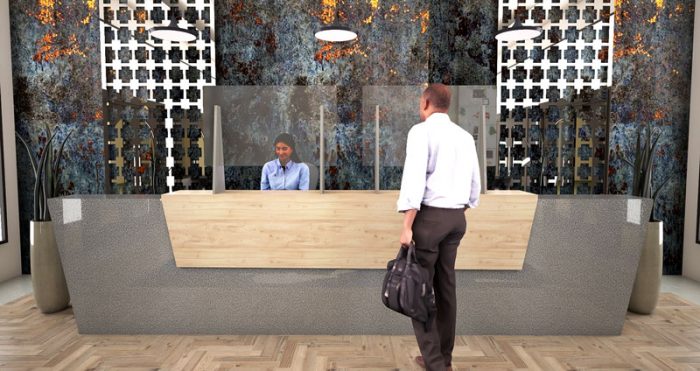
Screen by Separation Screens from Curtis Furniture
On the bright side, there is a degree of optimism for domestic leisure, which is fuelled by consumers not holidaying abroad and a desire to escape from their homes, albeit with reassurances on cleanliness and safety. There is consensus that business travel will take much longer to return, taking at least 12 months or more to recover. This is due to companies curbing spend due to financial constraints, the rise in home working technology and health concerns. Once business travel does resume the serviced apartment sector is predicted to see potential gains.
Boutique hotels in rural locations like the Cotswolds and the Lake District as well as tourist cities like York, Plymouth and Bath should benefit from the domestic leisure demand this year. Those with self-contained cottages will be particularly sought after, with many BCFA members reporting hotels repurposing existing buildings, adding new annexes, and investing in new build to provide accommodation which effectively delivers social distancing. The new Sonas Hotel in Grasmere with its self-contained cottages is a perfect example of an independent hotelier with the market confidence to invest. Elegant Clutter have developed bespoke pieces of art to create an ambience this boutique property deserves.
Harry Pass, creative director at Elegant Clutter explains how their business has responded during the pandemic, “We’re known for our adaptability and have worked even closer with our clients in order to meet their changing needs. As a business, we’ve realised that creating bespoke art is more important than ever. Hotels are having to consider what is truly essential in creating the perfect ambiance, and a perfectly designed piece of art provides maximum impact with a minimal burden on their new cleaning regimes.”
As well as working with the Sonas Hotel during the lockdown, Elegant Clutter has supplied big branded projects such the Hard Rock in Budapest where they made a picture frame with Rubik’s Cubes in honour of Ernó Rubik, the famous Hungarian architect and inventor of this devilishly difficult puzzle.
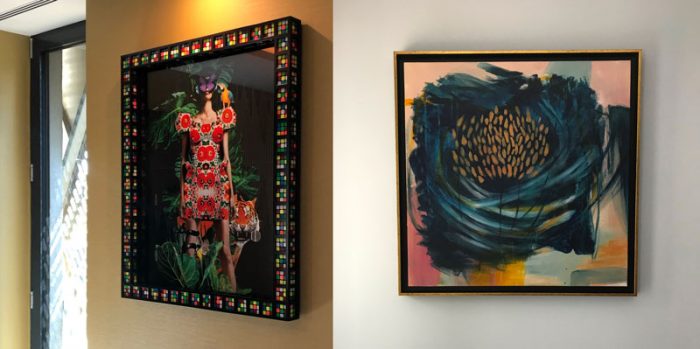
Bespoke work by Elegant Clutter, left Hard Rock Budapest, right Sonas Hotel Grasmere
With hotels potentially removing items such as bed cushions and throws, it’s vital that the soft furnishing which remain have maximum impact. Carl Nash, contract sales manager at Style Library Contract explains how they marry design and performance, “Designers have the flexibility of selecting designs from across our brands, which can be made in a specification they need. Our Clarke & Clarke, Emma Shipley Collection is a wonderful celebration of maximalist style.”
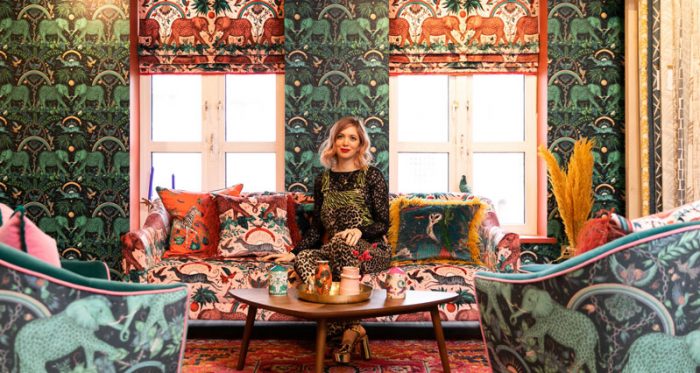
Clarke & Clarke, Emma Shipley collection from Style Library Contract
Ultimately the success of the hospitality sector comes down to consumer confidence, Carolyn Mitchell, group contracts sales director at Style Library Contracts adds, “Coping with the pandemic will become a way of life. Residents need to feel cared for, so the housekeeping elements will become an integral and visible part of the hospitality ritual.”
Although many hospitality businesses were forced to close, those with outdoor spaces or the ability to adapt have taken a proactive approach. For example, Revivalist supplied furniture and accessories to the Green Dragon Country Pub in Cheltenham, converting their function room into a mixed-use store supplying daily essentials to their local community, and they weren’t alone, the Cricketers on the Green in Surrey repurposed their Yurt to an enchanting farm shop. Gina Thompson, sales manager at Revivalist explains, “our customers want something extraordinary, so as well as supplying unique pieces of furniture and accessories we have developed customised hand sanitation units and screens”.
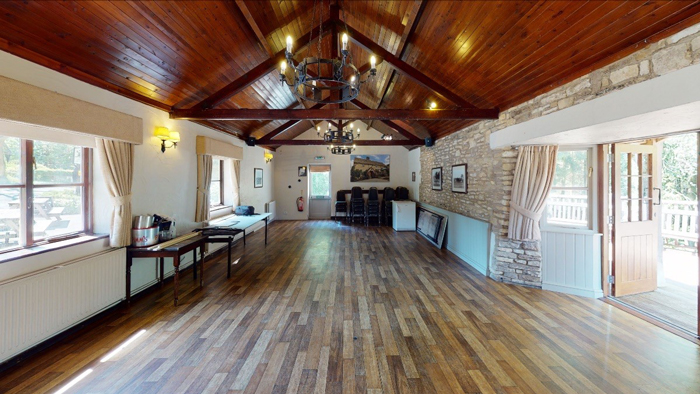
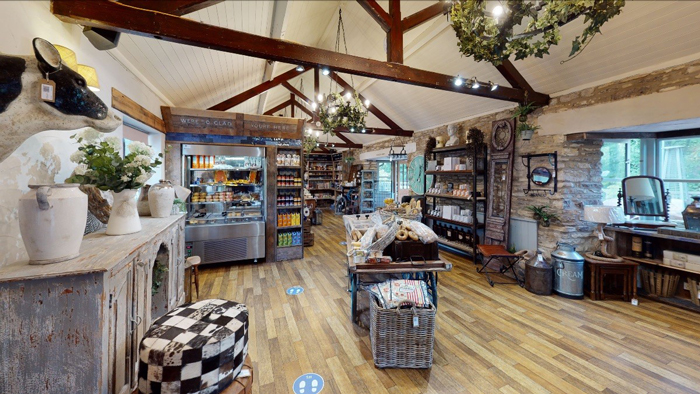
Green Dragon before and after their conversion using Revivalist furniture and accessories.
BCFA members have transformed their business during lock down too, and there is no better example than Curtis Furniture’s new Separation Screens brand. Launched in June, getting this new product service in place was a major business priority. As well as supporting their existing customers, CF have attracted new sectors including hair and beauty salons and implemented a new route to market with an ecommerce site and social media marketing. Their industry expertise means that screens are designed with the hospitality sector in mind, as they are trip proof, wheelchair friendly and at correct heights for restaurant tables, which many new entrants are simply not aware of. Even with new initiatives there are challenging times ahead, so CF are supportive of BCFA’s call to provide manufacturers working in hospitality a Business Rate holiday and VAT reduction.
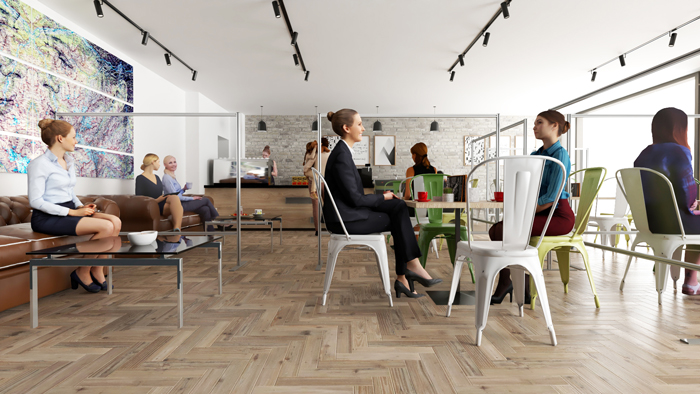
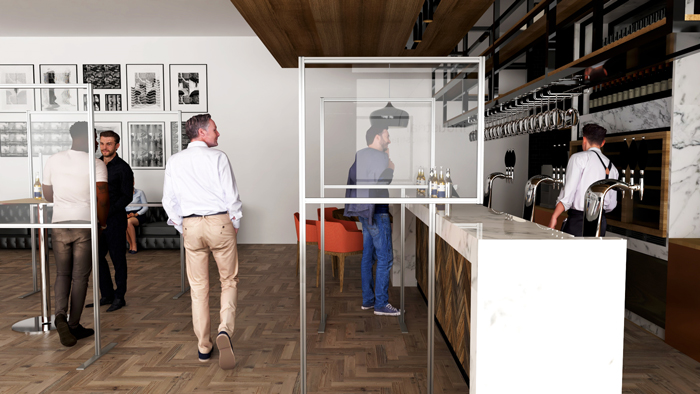
Screen by Separation Screens from Curtis Furniture.
Gary Crosbie, managing director at Interefurb works with many BCFA members. On the 16th March he had 6 months of projects in-hand, by 3pm that day, a week before the lockdown almost everything was postponed. How quickly business returns to pre-pandemic levels remains to be seen, with fears that the lack of international tourists and business travel will create a third winter for many hoteliers. Those interviewed expect some brand consolidation and acquisitions. Serviced apartments and the re-emergence of 3* accommodation could be benefit in a post-pandemic world.
The Boutique Hotel Review is available free of charge to BCFA members, contact Nadia Hussain on 01494 896790 or email Nadia@thebcfa.com for your copy.




